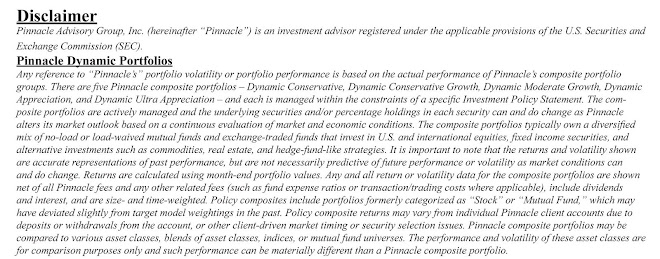Bill Gross, the Chief Investment Officer of PIMCO, is always a must read here at Pinnacle. His monthly Investment Outlook is one of those amazingly well written pieces that inspires all of us to try just a little bit harder to clearly describe what is happening in the financial markets. I encourage you to read it yourself by going to www.pimco.com. This month’s piece, July 2009, is called, “Bon” or “Non” Appetite?” and in it Gross continues to describe Pimco’s somewhat negative view of the future that they call the “new normal.” I’ll let you read the piece for yourself, but I couldn’t resist commenting on one paragraph that strikes close to home. Here is what Gross says about efficient markets and subjective forecasting:
“The efficient market hypothesis was always dead from the get-go, but academic tenure and Nobel prizes were food for the unwilling or perhaps unthinking. Pimco and yours truly are not masters of the antithesis, a subjective approach which might derisively be called “crystal ball gazing,” but we try to focus on what might be legitimate changes in the way economies and financial markets are affected by seemingly irrational or “non-normal” behavior and events….”
Yes, Bill, I’ve written a book that describes in great detail the problems with the efficient markets hypothesis (more properly called the rational expectations pricing theory). But what is interesting is that even Mr. Gross is squeamish when it comes to making subjective market forecasts. Instead, PIMCO focuses on the results of “irrational” or “non-normal” events, which of course can’t be rationally modeled using past data, and result in…you guessed it….subjective forecasts. It is precisely PIMCO’s ability to make better forecasts than the consensus in a world of uncertainty, which is truly in the realm of qualitative analysis, or experience, or good judgment, or crystal ball gazing, which allows them to consistently beat the markets and create positive returns for investors. Investors have to learn that they don’t need to defend their use of subjective skill, judgment, and experience in making good forecasts. If the “new normal” consists of lower than historical average returns, then these are the skills that will command a premium in the investment marketplace.

